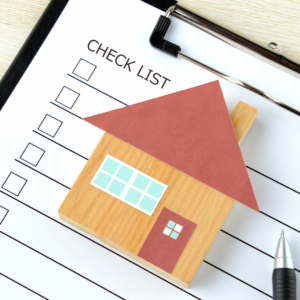Selling your home is a big decision — one that involves more than just listing your property on the MLS and waiting for buyers to roll in. From preparing your home, to showings, to offers, to final negotiations, understanding the process can help you maximize your profits and minimize stress. Whether you’re a first-time home seller or you haven’t sold a home in years, here are 10 key things to know before putting your house on the market.
1. Know Your Home’s Value
Before listing your home, it’s crucial to understand its current market value. A professional valuation or Comparative Market Analysis (CMA) from a real estate agent can give you a realistic price range. Factors that are taken into consideration include what other homes in the area are selling for, the condition of your home, any improvements or upgrades you’ve done, and the size of your lot. Setting the correct market value is imperative to a good sale. Overpricing your home can scare off buyers and keep your home sitting on the market, while underpricing could mean you’re leaving money on the table.
2. Understand the Market
Is your local area a buyer’s market or a seller’s market? Local market conditions will influence how quickly your home sells and for how much. These local market areas can be very specific! Demand for a home in your area can depend on things like the school district, local amenities, access to highways, and even property taxes. A knowledgeable real estate agent can help you understand current local trends and determine the best strategy to sell your home.
3. Declutter and Depersonalize
Less is more when it comes to selling. Clear out clutter and remove personal items like family photos or memorabilia. Clean off all countertops, tables, and flat surfaces. Put items like toiletries, soaps, and kitchen gadgets inside cupboards. Minimize decorations and knicknacks. A clean, open space makes rooms look larger and brighter. Removing personal items allows buyers to envision themselves living in your home — not feeling like a guest in yours. To get ideas on how your home should look, check out current listing photos of other homes on the market.
4. Repairs and Improvements Matter
Small issues like leaky faucets, chipped paint, burned out lightbulbs, or squeaky doors can make a big impression. Take care of minor repairs. If a buyer sees several needed repairs during the showing, he will think the seller has not taken good care of the house. Consider simple upgrades as well. A few new light fixtures and a fresh coat of paint can freshen up the look of your home and increase its appeal to buyers. There are many small improvements you can do that won’t break the bank.
5. Curb Appeal Counts
Buyers often make their first impression even before stepping through the front door. Many buyers will do a “drive by” of your home before scheduling a showing. The outside of your home should be as inviting as the inside! Spruce up your landscaping by cleaning up weeds, adding mulch to flowerbeds, and powerwashing the exterior. Make sure your entryway is welcoming with a few pots of flowers or nice decorations. A tidy yard and fresh mulch can go a long way.
6. Consider Professional Staging
Staged homes tend to sell faster and often for more money. A professional stager will arrange furniture and decor to highlight your home’s best features and make the space feel open and inviting. If you don’t have the funds to hire a professional, you can add many of your own touches to polish off the look of your home. Add a throw and some pillows to couches and beds, put a bowl of lemons or a bouquet of flowers in the kitchen, and remove bulky furniture for a cleaner look.
7. Be Ready for Showings
Once your home is listed, be prepared for showings — often on short notice. Keep your home clean and clutter-free, and try to be flexible with viewing times to accommodate serious buyers. It’s important to keep your home clean and mess free for showings. This could mean all hands on deck to vacuum, dust, wipe down surfaces, and put personal items away. Think of it as a first date for your home. The first impression is the most important as a potential homebuyer views your home.
8. Understand the Costs of Selling
Selling a home comes with its own set of expenses. These may include agent commissions, closing costs, repair requests, and moving expenses. You may have a mortgage or equity line to pay off. There are transfer taxes, deed preparation fees, and notary fees. Knowing these costs upfront can help you budget and plan accordingly. Your real estate agent can help you understand the costs and provide you with an estimate of the net proceeds from your home sale. This is valuable information, especially if you are using your proceeds to purchase your next home.
9. Have Your Paperwork Ready
Gather important documents such as recent utility bills, warranties, invoices for repair work, and manuals for appliances. Many potential buyers will request average utility costs. If you’ve done any major repair or renovation, supplying records of this can be beneficial to your home sale. You may also want to provide your real estate agent with a complete list of repairs and renovations if you’ve done extensive work on your home. This can be shared with buyers to give them peace of mind. You will also need to fill out a seller’s property disclosure, supplied by your agent. Having all your paperwork organized and available can streamline the selling process and reduce delays.
10. Hire the Right Real Estate Agent
A skilled real estate agent can make a huge difference in your selling experience. From pricing and marketing to negotiating and closing, they’ll guide you every step of the way. Your agent should provide a full range of services to help you in preparing your home, marketing your home, and getting your home sold. Look for someone who knows your local market, communicates well, and has a strong track record. There are many details, deadlines, and negotiations along the way. You will spend a lot of time with your agent. Be sure he/she is highly experienced and personable!
Selling your home is a journey, but with the right preparation and support, it doesn’t have to be overwhelming. By understanding the key steps involved, you’ll be in a better position to make informed decisions and get the best possible outcome. Thinking of selling? Let’s talk about your goals and how I can help you make the most of your home sale.







